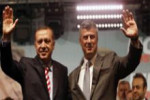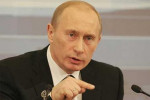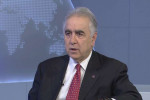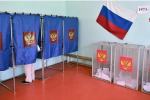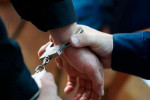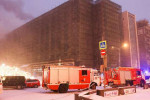
Հարութ Սասունյանը, Արմենյան Քուրիյոր թերթի խմբագիրը, երկար տարիների, հրավիրված է եղել, հարյուրավոր հյուրերի հետ սփյուռքից Մոսկվայի եկեղեցվո բացմանը, Ոսկերիչների համագումարին, խրախջանքներին, Հայաստանում մի շարք պետական մակարդակի ժողովներին, որտեղ, իրենց տեղեկացվել է թե ինչու է Հայաստանը միացել ՄՄը, ռազմական ապահովության խնդիրների մասին ու մի շարք այլ Արցախ, Հայաստան, Սփյուռք հարցերի մասին, ինչպես նաեվ Ցեղասպանության հարյուրամյակին պատրատվելու ծրագրերի մասին....
Ուրախ եմ , որ նման հանդիպում ծրագրել է Սփյուռքի Նախարարությունը։ Ուրախ եմ , որ գոնե, «ջոկված» կամ գոնե ժողովրդի կողմից չջոկված հայ, «պաշտոնյաների» հետ եղել են միտինգներ...ինքս համեստ մարդ լինելով, ուրախ եմ, որ ինքս այդտեղ չէի, վստահ եմ , որ իմ կարծիքների տեղ չէր էլ լինի, ոչ էլ լսող....Հայաստանի իշխանությունները ու «ղեկավարություն» ը առաջ ճաշը պատրաստում են ու դնում սեղանին, աշխարհասփյուռ հայերի առաջ, ու ուզես չուզես պետք է կուլ տաս...ոչ ոք, կարծիք չի հարցնում, նախքան եփելը , թե նման ճաշ հետաքրքիր է ուտողի համար, թե ոչ...Բայց դե ունենք, ինչ որ ունենք...սա է...ուզենք գոհանալ, կամ դժգոհել, ոչինչ չի փոխվելու ու չի փոխվում, ոչ գործելակերպի մեջ, ոչ կազմակերպման ջոկողությունների մեջ...ու այսպես էլ մնում ենք, ինչ որ ինքնակոչների քմահաճույքներին, որոնց քմահաճույքներին էլ որ մնում ենք....ու ողորմողների նման, գոհանում ենք, որով դրանից ավել ոչ կարող ես ակնկալել, ոչ կարողություն ունես փոխելու իրավիճակը ու սսկվում ու ուտում ես քեզ տված ճաշը.....
1 - Cathedral in Moscow and
Conference in Yerevan
By Harut Sassounian
Publisher, The California Courier
I just returned from a three-day conference in Yerevan where 40 Armenian
activists, journalists, and representatives of political, religious and
cultural organizations from 18 countries (Argentina, Armenia, Artsakh,
Belgium, Brazil, Canada, Denmark, Egypt, Ethiopia, France, Iran, Israel,
Lebanon, Netherlands, Russia, Syria, United States, and Uruguay) attended
closed-door briefings from senior government officials.
The attendees met with the Vice Speaker and chairs of all parliamentary
committees, President's Chief of Staff Vigen Sargsyan, Foreign Minister
Eduard Nalbandian, Defense Minister Seyran Ohanyan, Diaspora Minister
Hranush Hakobyan, National Security Council Secretary Artur Baghdasaryan,
Constitutional Court Chairman Gagik Harutunyan, and President of Artsakh
Bako Sahakyan
Since the briefings dealt with sensitive political and national security
issues and were off-the-record, I can only disclose the general topics
without attribution to a specific speaker or participant:
-- Armenia's decision to join the CIS Customs Union instead of signing the
European Association Agreement;
-- Threats to Armenia's national security and efforts to neutralize them;
-- Preparations for possible international legal action against Turkey to
secure restitution for the Armenian Genocide;
-- Plans for the Centennial of the Armenian Genocide;
-- Status of signed but not ratified Armenia-Turkey Protocols;
-- Superior morale of victorious Armenian soldiers -- an advantage over
Azeris in a renewed war with Azerbaijan;
-- Diaspora's participation in the economic development of Armenia and
Artsakh.
The conference, organized by the Diaspora Ministry, provided the
participants the rare opportunity to offer their critical assessment of the
situation in the homeland and to openly question Armenia's and Artsakh's
highest officials. The political leaders and their diasporan guests
emphasized the urgent need for a framework or structure that would
coordinate the efforts of Armenians in Armenia, Artsakh and Diaspora.
During the conference and media interviews, I proposed the creation of a
pan-Armenian committee which would include representatives from Armenia,
Artsakh, and Diaspora, to deal expressly with the critical needs of
Artsakh, similar to the Centennial Committee for the Armenian Genocide,
except that the Artsakh committee would be of a permanent nature.
On September 21, the conference participants were invited to attend the
special presidential reception in celebration of Armenia's Independence
Day. The evening ended with an impressive concert and fireworks show in
Republic Square.
Prior to arriving in Yerevan, I attended the spiritually uplifting
consecration of Moscow's Armenian Cathedral, which reportedly cost tens of
millions of dollars contributed by generous Russian-Armenian businessmen.
The magnificent church structure and the nearby community center are
expected to play a critical role in preserving the Armenian language and
Christian faith for the two-million Armenians living in Russia. The
September 17 consecration ceremony was attended by the Presidents of
Armenia and Artsakh, Catholicos Karekin II, high-ranking Armenian clergymen
from around the world, and Russian Orthodox Patriarch Kirill. Pres. Putin
did not attend due to his absence from Moscow.
On this august occasion, a series of concerts, receptions and banquets were
held in Moscow hosted by the Armenian Diocese of Russia for the large
number of guests from throughout the world. In appreciation, Catholicos
Karekin II recognized the two dozen benefactors of the Cathedral by
bestowing upon them the highest honorific medals of the Armenian Church.
While in Moscow, I attended several jewelry-related events, organized by
prominent Armenian jewelers in Russia. For the first time in a hundred
years, an Armenian, Gagik Gevorkyan, President of Estet Jewelry House, was
elected head of the prestigious Russian Jewelers Guild. Mr. Gevorkyan
sponsored the lavish annual Jewelry Charity Ball at his company's
headquarters in Moscow, attended by over a thousand jewelers and their
families, including well-known Armenian jewelers from France, Canada, and
the United States.
With a sense of great pride, I watched members of the Armenian Jewelers
Association from Russia and North America address the distinguished guests
at the International Jewelry Economic Forum and display their precious
handiwork at JUNWEX, the XII International Jewelry and Watch Exhibition.
Before departing Moscow, I gave several TV interviews and participated in a
panel discussion on Hayk Demoyan's new book, 'Turkey's Foreign Policy and
the Karabagh Conflict.'
Despite the hectic schedule, my journey to Moscow and Yerevan opened up
important networking opportunities for closer collaboration between Armenia
and the two largest diaspora communities of Russia and the United States.




